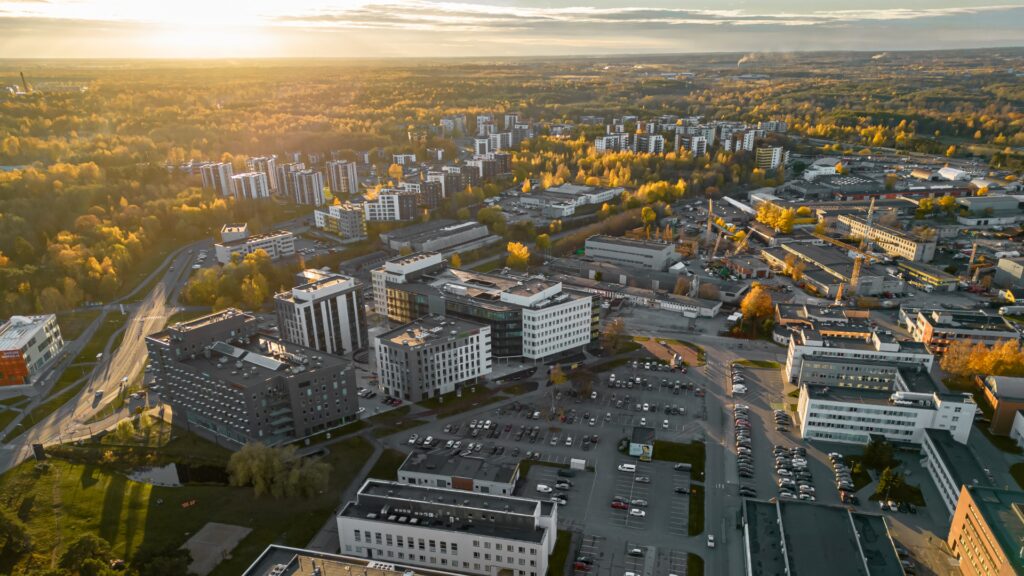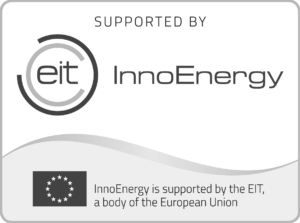30.05.2023
Digitalization of waste collection will help to cut costs and save environment

In the framework of the “Tallinn European Green Capital” program, the Tehnopol Science and Business Park launched a pilot project with the Greentech company ibiot to digitize waste management on the campus. The aim of the pilot project is to use sensors to extract big data from waste containers. This data can be used by the waste collection company to transition from traditional routine-based to on-demand waste collection.
The digitalization of waste containers has a two-way effect – on the one hand, there is no need to empty half-filled containers; on the other hand, it allows to avoid overfilling. It is cheaper than scheduled waste collection because there are fewer collection points, but it is also of higher quality and does not burden the environment.
Riho Antsmäe, the founder of ibiot, explained that studies have shown that in the case of scheduled waste collection, up to 70% of containers are emptied when they are only half-filled. In contrast, up to 10% of containers are overfilled. “The big data collected from the containers will allow us to dynamically manage waste collection routes and reduce overall costs by at least 20%. The ecological footprint of waste management, which results from the kilometres of waste transportation and the waste released into the environment due to overfilling, would also be significantly reduced,” Antsmäe said. He added that globally, it is estimated that the expenses of waste collection and treatment are among the highest of all municipal costs, so there is an excellent opportunity to cut costs. One big advantage of ibiot’s solution is that there is no need to replace waste containers – the existing containers can be digitalized.
The unique solution is being tested in the Tehnopol campus, as Marten Peiel, Head of Real Estate and Facility Management at Tehnopol, saw its potential. “Our goal is to move towards waste reduction, and the digitalization of waste collection is an important milestone. In addition to the dynamic management of waste collection, big data also enables to analyze the generation of waste by type in Tehnopol. This will definitely open up new prospects in environmental conservation,” Peiel said, adding that testing new technologies is in line with Tehnopol’s aim to support innovation and technology entrepreneurship that will impact the world.
Waste collection from the Tehnopol campus is managed by TJT Recycling. Taavi Tuisk, a member of the company’s management board, said that such innovative solutions are very welcome in urban space, making waste transport more efficient and helping reduce costs. “Who among us wouldn’t be bothered by overflowing bins and the knowledge that the local government is wasting money on empty journeys instead of creating value for residents that would make our lives better and more comfortable? The pilot project of ibiot and Tehnopol solves both problems – with the help of sensors, both the waste collection operator and the customer know when waste collection is required and in what capacity, which will help save costs. We are glad that Tehnopol is piloting this solution, and hopefully, we will be able to implement it in other regions in the future,” Tuisk said.
CleanHand OÜ, an Estonian company established in 2018, operates under the Ibiot brand. The company has gained fresh impetus thanks to two accelerators from Tehnopol and has successfully raised money for product development on several occasions.












